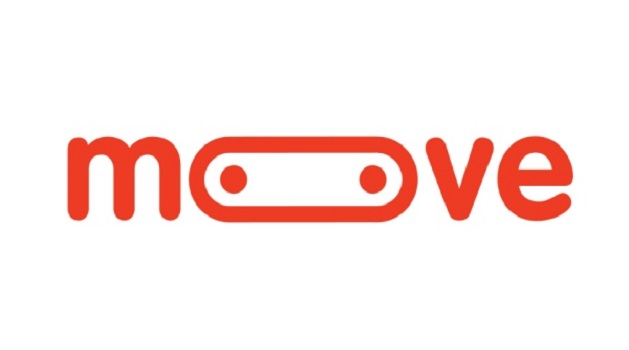General News
AFCON, Oxlade, Will Smith, Queen Elizabeth, Buga, Others Lead 2022 Google Search Lists

Google on Wednesday announced the results of its 2022 Year In Search, revealing the most searched terms, people, actors, musicians, topics, questions and more that captured the interest of Nigerians the most throughout this year.

Google’s Year in Search is an annual analysis that reveals the top trending lists and also spotlights what the world searches to see, learn and do. In Nigeria, the result for this years’ Year in Search shows a heightened interest in politics, entertainment, sports, lifestyle and notable personalities.
The 2022 Year in Search lists provide a snapshot into what piqued Nigerians’ curiosity in a year that saw major sporting events, high profile deaths, and in the run up to Nigeria’s election in February 2023.
The Africa Cup of Nations, referred to as AFCON, and Casemiro, Brazilian football player, topped the categories of top trending searches and top athletes and sports people respectively. Nigeria was eliminated from the 2022 AFCON competition by Tunisia in a 1 – 0 defeat as Senegal went on to beat Egypt to win their first Africa Cup of Nations title earlier this year. The strike action by ASUU, the Academic Staff Union of Universities, that lingered for eight months got the Union in second place in the top trending searches by Nigerians in the period under review.
Oxlade, Nigerian singer and songwriter, topped both categories of top trending people and top trending musicians searched by Nigerians this year. Asake, an Afrobeat singer signed to YBNL Nation came up in second place in the top trending musicians list. Anikulapo, a Nigerian epic fantasy film starring Kunle Remi and produced by Kunle Afolayan topped the category of trending movies and series.
Questions like, ‘Who is Peter Obi’s running mate?’, ‘Who is the APC Presidential candidate?’, ‘Who is Atiku’s running mate?’, ‘Who is leading in the Osun State election?’, ‘Who ’s running mate?’ and ‘Who is Peter Obi?’, reveal the increased interest of Nigerians for politics and the elections happening next year.
Entertainment related search terms like ‘Finesse lyrics’, ‘Buga’, the song by Kizz Daniel featuring Tekno and ‘Will Smith’ all topped their categories revealing Nigerians’ interest for lyrics, songs and celebrity personalities.
And in a year with a number of high profile deaths, the death of Queen Elizabeth was the most searched loss, followed by gospel singer Osinachi Nwachukwu, who died in April and actress Ada Ameh who died in August.
Other top searched questions like, ‘How to link NIN?’, ‘How to buy shares?’, ‘How to register for PVC online?’, ‘What is Lupus?’ and “What is NATO?’ showed how Nigerians made use of Search to find out more about their interests in 2022.
General News
Moove Plans to Raise $1.2Bn Debt Round for US Autonomous Vehicle Expansion

Moove, an African mobility fintech startup, is on a quest to secure a $1.2 billion debt financing round to support the rollout of a fleet of autonomous vehicles.

This is in partnership with Alphabet Inc.’s Waymo in the United States, according to a Bloomberg report citing sources familiar with the matter.
The startup has since attracted backing, including from Uber Technologies Inc., and entered a strategic partnership with Waymo in December 2024 to provide financing for self-driving cars.
Ladi Delano, co-founder of Moove, noted that the company has a solid financial track record.
“Moove has built strong relationships with some of the world’s leading lenders. We have also fully repaid our first-ever debt facilities, which signals our maturity and marks a key milestone that demonstrates the strength of our platform as we enter the next phase of global autonomous-vehicle infrastructure deployment,” he said.
The round is reportedly oversubscribed, with strong participation from private credit firms and banks.
Waymo has also not made any official statement regarding the funding round. While final details are expected to be concluded in the coming weeks, the deal will mark a significant milestone for the firm as it ramps up its global ambitions.
Founded in 2020 by Nigerian entrepreneurs, Ladi Delano and Jide Odunsi, Moove began by providing vehicle financing for ride-hailing drivers in Africa’s largest cities.
General News
Firm Explores the Evolution of AI-powered Ransomware with Password-gated Capabilities

Kaspersky experts have revealed the inner workings of FunkSec — a ransomware group that illustrates the future of mass cybercrime: AI-powered, multifunctional, highly adaptive and operating on volume with ransoms as low as $10,000 to maximise profits.

Kaspersky’s Global Research and Analysis Team (GReAT) constantly monitors the ransomware threat landscape, where attacks continue to rise. According to the company’s latest State of Ransomware report, the share of users affected by ransomware attacks worldwide increased to 0.44% from 2023 to 2024, up by 0.02 percentage points.
While this percentage may appear modest compared to other cyber threats, it reflects the fact that attackers typically prioritise high-value targets rather than mass distribution, making each incident potentially devastating. Within this evolving landscape, FunkSec has emerged as a particularly concerning threat.
Active for less than a year since its emergence in late 2024, FunkSec has quickly surpassed many established actors by targeting government, technology, finance and education sectors. What sets FunkSec apart is its sophisticated technical architecture and AI-assisted development.
The group packages full-scale encryption and aggressive data exfiltration into a single Rust-based executable, capable of disabling over 50 processes on victim machines and equipped with self-cleanup features to evade defenses.
Beyond its core ransomware functionality, FunkSec has expanded its toolkit to include a password generator and a basic DDoS tool — both showing clear signs of code synthesis using large language models (LLMs).
FunkSec’s approach reflects the evolving landscape of mass cybercrime, combining advanced tools and tactics. Kaspersky’s GReAT experts highlight the key features that define their operations:
Password-Controlled functionality
GReAT experts discovered that FunkSec ransomware features a unique password-based mechanism that controls its operation modes. Without a password, the malware performs basic file encryption, while providing a password activates a more aggressive data exfiltration process in addition to encryption to steal sensitive data.
FunkSec packs full-scale encryption, local exfiltration and self-cleanup into a single Rust binary—without a side-loader or a companion script. That level of consolidation is uncommon and gives affiliates a plug-and-play tool they can deploy almost anywhere.
Use of AI in development
Code analysis shows that FunkSec is actively using generative artificial intelligence to create its tools. Many parts of the code seem to be automatically generated rather than manually written. Signs of this generic placeholder comments (such as “placeholder for actual check”) and technical inconsistencies, like commands for different operating systems that don’t align properly. Additionally, the presence of declared but unused functions—such as modules included upfront but never utilised — reflects how large language models combine multiple code snippets without pruning redundant elements.
“More and more, we see cybercriminals leveraging AI to develop malicious tools. Generative AI lowers barriers and accelerates malware creation, enabling cybercriminals to adapt their tactics faster.
By reducing the entry threshold, AI allows even less experienced attackers to quickly develop sophisticated malware at scale,” comments Marc Rivero, Lead Security Researcher at Kaspersky’s GReAT.
High-volume, low-ransom strategy
FunkSec demands unusually low ransom payments, sometimes as little as $10,000, and pairs this with the sale of stolen data at discounted prices to third parties. This strategy appears designed to enable a high volume of attacks, helping the group quickly establish its reputation within the cybercriminal underground. Unlike traditional ransomware groups that seek million-dollar ransoms, FunkSec employs a high-frequency, low-cost model — further underscoring its use of AI to streamline and scale operations.
Expands beyond ransomware
FunkSec has expanded its capabilities beyond the ransomware binary. Its dark leak site (DLS) hosts additional tools, including a Python-based password generator designed to support brute-force and password-spraying attacks, as well as a basic DDoS tool.
Advanced evasion
FunkSec employs advanced evasion techniques to avoid detection and complicate forensic analysis. The ransomware is capable of stopping over 50 processes and services to ensure thorough encryption of targeted files. Additionally, it includes a fallback mechanism to execute certain commands even if the user launching FunkSec lacks sufficient privileges.
General News
IMF Raises Nigeria’s 2025 GDP Growth Forecast to 3.4%

International Monetary Fund (IMF) has projected a 3.4 percent expansion in Nigeria’s real Gross Domestic Product (GDP) for 2025, following the conclusion of its annual Article IV consultation with the country.

The IMF announced the forecast in a statement on Wednesday, highlighting progress in macroeconomic reforms while cautioning about persistent vulnerabilities.
The Article IV consultation is a regular assessment of a country’s economic performance and policy framework by the IMF’s executive board. The latest review reflects cautious optimism about Nigeria’s economic trajectory amid ongoing reform efforts.
According to the IMF, Nigeria’s growth in 2024 reached 3.4 percent, mainly driven by increased hydrocarbon production and a robust services sector. However, agricultural output remained subdued due to security challenges and falling productivity.
The IMF expects the positive momentum to continue into 2025, supported by the start of operations at a new domestic refinery, higher oil production, and sustained performance in services. It projected that medium-term growth would remain around 3.5 percent, buoyed by domestic reforms despite an uncertain global environment.
“The Nigerian authorities have implemented major reforms over the past two years which have improved macroeconomic stability and enhanced resilience,” the Fund stated. “The authorities have removed costly fuel subsidies, stopped monetary financing of the fiscal deficit, and improved the functioning of the foreign exchange market.”
The IMF said investor confidence has improved, noting Nigeria’s successful re-entry into the Eurobond market and the resumption of portfolio inflows. However, it acknowledged that poverty and food insecurity have worsened, pushing the government to prioritize inclusive growth.
The report also highlighted positive trends in external reserves, foreign exchange market stability, and inflation. It noted that inflation dropped to 23.7 percent year-on-year in April 2025 from an annual average of 31 percent in 2024, based on the rebased Consumer Price Index released by the National Bureau of Statistics.
“Naira stabilization and improvements in food production brought inflation to 23.7 percent… Inflation should decline further in the medium-term with continued tight macroeconomic policies and a projected easing of retail fuel prices,” the IMF said.
On the fiscal front, the Fund said revenue gains from currency depreciation, improved administration, and higher grants helped offset rising interest payments and administrative costs, leading to improved fiscal performance in 2024.
Despite the progress, the IMF warned of growing risks. It said falling global oil prices or rising financing costs could negatively impact Nigeria’s economic stability. “A further decline in oil prices or increase in financing costs would adversely affect growth, fiscal and external positions, undermine financial stability and exacerbate exchange rate pressures,” it said.
The IMF further cautioned that any deterioration in domestic security could derail growth and worsen food insecurity across the country.

 Telecom2 days ago
Telecom2 days agoAVEVA Highlights Climate Impact Gains in 2024 Sustainability Report

 General News2 days ago
General News2 days agoAfCFTA Opens Opportunity for Logistics Sector

 Telecom2 days ago
Telecom2 days agoALTON Explains SIM-related Services Disruption Across Mobile Networks

 Telecom1 day ago
Telecom1 day agoNCC Approves MTN, 9Mobile Roaming Collaboration Deal

 E-Financial1 day ago
E-Financial1 day agoWorld Bank Approves Extra $65m for Nigeria’s SPESSE

 Telecom2 days ago
Telecom2 days agoMTN Foundation, NDLEA, UNODC Unite in Abuja Against Substance Abuse

 E-Financial1 day ago
E-Financial1 day agoEcobank Taps Google Cloud to Deepen Financial Inclusion

 E-Business1 day ago
E-Business1 day agoCAC Launches AI-powered Business Registration Portal



























